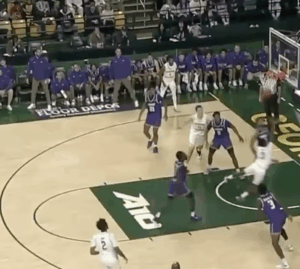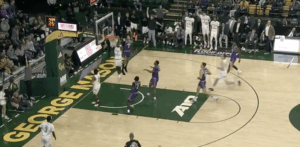The Presiding Bishop of the Episcopal Church, USA, speaking at the National Press Club in Washington, D.C. Tuesday, assured reporters and others that the legal battle between her denomination and defectors who’ve formed an alternative body and claimed control over Episcopal properties in Virginia will be appealed to the state’s Supreme Court, no matter circuit court outcome.
The Rev. Dr. Katharine Jefferts Schori, commenting on the case and others elsewhere in the U.S., noted that in Virginia’s suit, the defectors have based their claim on what she called “a Civil War law that permitted the division of churches based on their attitudes toward slavery.”
While the Fairfax Circuit Court has ruled the law is applicable in the suit pitting defectors occupying the historic Falls Church downtown in the City of Falls Church, and others, against the Diocese of Virginia, its constitutionality remains at issue. The ultimate outcome of that ruling, whether at the state or U.S. Supreme Court level, will be profound for all major church denominations dealing with schismatic pressures.
In response to a question about whether right-wing elements aligned with the so-called “Family” or “Fellowship” have been involved in promoting schism in her denomination (as documented in the Oct. 30, 2008 edition of the Falls Church News-Press), Schori said, “There is evidence of wealthy people for some time trying to destabilize mainstream denominations,” and she recommended a book on the subject, entitled, “Hard Ball on Holy Ground” (by Stephen Swecker-ed.)
Shorey’s remarks at the National Press Club luncheon were on the more general subject of “the proper role of religion in the public square,” and in response to 40 minutes of questions from the audience, she said she did not agree that the United States is “a Christian nation.”
“A majority of citizens may be Christians, but there are more Jewish people, and Muslim people than there are members of our entire denomination,” she said. While many founding fathers were Christians, she said, the majority were more correctly identified as “deists.”
She said she hoped the new Obama administration “would take a hard look” at the “faith-based” initiatives of the outgoing Bush administration, and said there should be “no special entrée to government funding” for faith-based groups.
The role of religion to government should be that of providing “diagnosis, challenges and encouragement,” she said.
On the controversial issue of homosexuality that has helped to fuel the push for schism in the Episcopal Church, she said that the pleas for equality and justice from the gay, lesbian, bisexual and transsexual population are “prophetic” in the church’s mission to “challenge the status quo” and “open rights to all people.”
It has been the church’s “core prophetic stand” to advance such rights following the establishment of the U.S. government “to non-landowners, then to slaves, then to women,” she noted. The impulse toward these come from “a religious foundation,” she said, adding “The most essential role of religion in the public square is to affirm that all persons embody the image of God” and strive for equal rights and “to live in full communion with others.”
“We affirm that being the ‘land of the free’ does not mean freedom to exploit and accumulate,” she said. “Religion challenges society on behalf of those who do not live in the world we desire for ourselves.”
By contrast to the claim that homosexual rights violate the “family values” as presented in the Bible, she quipped that she wanted to know exactly which “family values” in the Bible are being talked about. “There are very odd images of family life in the Bible,” she said, noting its reports of conjugal relations with concubines and slaves, among other things.
She said that whereas the issue of equal rights for homosexuals constitutes a part of the concerns of the Episcopal Church, “when such issues become paramount to the exclusion of others, and become all-consuming, it becomes a form of idolatry.”
It was clear that by implication she was referring to anti-homosexual rights activists using the issue to promote schism in her denomination.
“People have split off from our denomination in the past over issues of baptism, the new prayer book, the ordination of women, and even the affirmation of an equal place for African-Americans,” she said. “Every time, we bless those who leave on their journey and remind them that our doors remain open and our lights on.”
Schori, who was the Bishop of Nevada, was elected the denomination’s presiding bishop in 2006.












